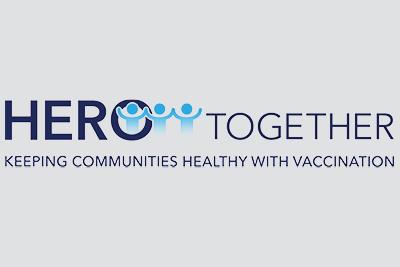
The Duke Clinical Research Institute (DCRI) and Verily are utilizing the HERO Registry and community to launch a study to gain long-term insights about the COVID-19 vaccine developed by Pfizer and BioNTech, including real-world safety data. This study, which is funded by Pfizer, will follow vaccinated healthcare workers for two years to assess their experiences after receiving the vaccine.
Following a global Phase 3 clinical trial involving more than 44,000 participants across 155 sites, the U.S. Food and Drug Administration granted an Emergency Use Authorization to the Pfizer-BioNTech COVID-19 vaccine to prevent COVID-19 in individuals aged 16 and older. Distribution of the vaccine across the United States has begun, and high-risk individuals, including frontline healthcare workers, may be among the first recipients. DCRI and Verily plan to help study the real-world experiences of the U.S. healthcare worker population receiving the vaccine.
This safety study, HERO-TOGETHER, will enroll approximately 20,000 healthcare workers after they receive the vaccine and will follow them for two years, inviting participants to provide information about their health and any unexpected medical care they have received.
Study participants will be current or new members of the HERO Registry, a nationwide community of healthcare workers established early in the pandemic to better understand their needs and preferences. The HERO Registry was designed and is coordinated by the DCRI with funding from the Patient-Centered Outcomes Research Institute (PCORI) and leverages PCORnet®, the National Patient-Centered Clinical Research Network.
“The HERO Registry is pleased that its existing nationwide community of healthcare workers can engage with this important research around a vaccine,” said DCRI epidemiologist Emily O’Brien, PhD, the principal investigator of the registry. “When we combine this resource with DCRI’s deep expertise in outcomes research, we will be able to gain insights into people’s experiences with the vaccine and help answer questions about an urgent public health crisis.”
Real-world safety studies are routine as new therapies or vaccines receive authorization; the DCRI has a long history of conducting post-market monitoring studies.
“Pfizer is committed to monitoring the short- and long-term safety of the vaccine in people vaccinated outside of clinical trials under emergency use authorization,” said Patrick Caubel, MD, PhD, chief safety officer and head of worldwide safety at Pfizer. “Studies of vaccinated persons outside the clinical trial setting are an important part of our work to build on the evidence that informs the profile of the Pfizer-BioNTech COVID-19 vaccine. We look forward to working with the Duke Clinical Research Institute and Verily on this important study.”
“The Baseline platform is purpose-built to provide an innovative research experience that is accessible to participants, ensures secure and timely data exchange for investigators, and accelerates an understanding of new interventions like the Pfizer and BioNTech COVID-19 vaccine in a real-world setting,” said Jessica Mega, MD, MPH, chief medical and scientific officer at Verily. “We’re pleased to be a broader supporter of the HERO Registry and believe the HERO-TOGETHER vaccine surveillance program demonstrates the value of having high-quality registries, like the HERO Registry, to support public health efforts.”
Anyone who is 18 or older and works in a healthcare setting is eligible to join the HERO Registry, and those who have received the Pfizer-BioNTech vaccine for COVID-19 can self-enroll in HERO-TOGETHER through the HERO Registry participant portal within 60 days of receiving the vaccine.
About the Duke Clinical Research Institute
The DCRI, part of the Duke University School of Medicine, is the largest academic clinical research organization in the world. Our mission is to develop, share, and implement knowledge that improves global health through innovative clinical research. The institute conducts multinational clinical trials, manages major national patient registries, and performs landmark outcomes research. The DCRI is a pioneer in cardiovascular and pediatric clinical research, and conducts groundbreaking clinical research across multiple other therapeutic areas, including infectious disease, neuroscience, respiratory medicine, and nephrology. The DCRI serves as the coordinating center for major clinical research programs, such as the Environmental Influences On Child Health (ECHO) program, the Antibacterial Resistance Leadership Group (ARLG), the NIH Health Care Systems Research Collaboratory, and the Pediatric Trials Network (PTN).